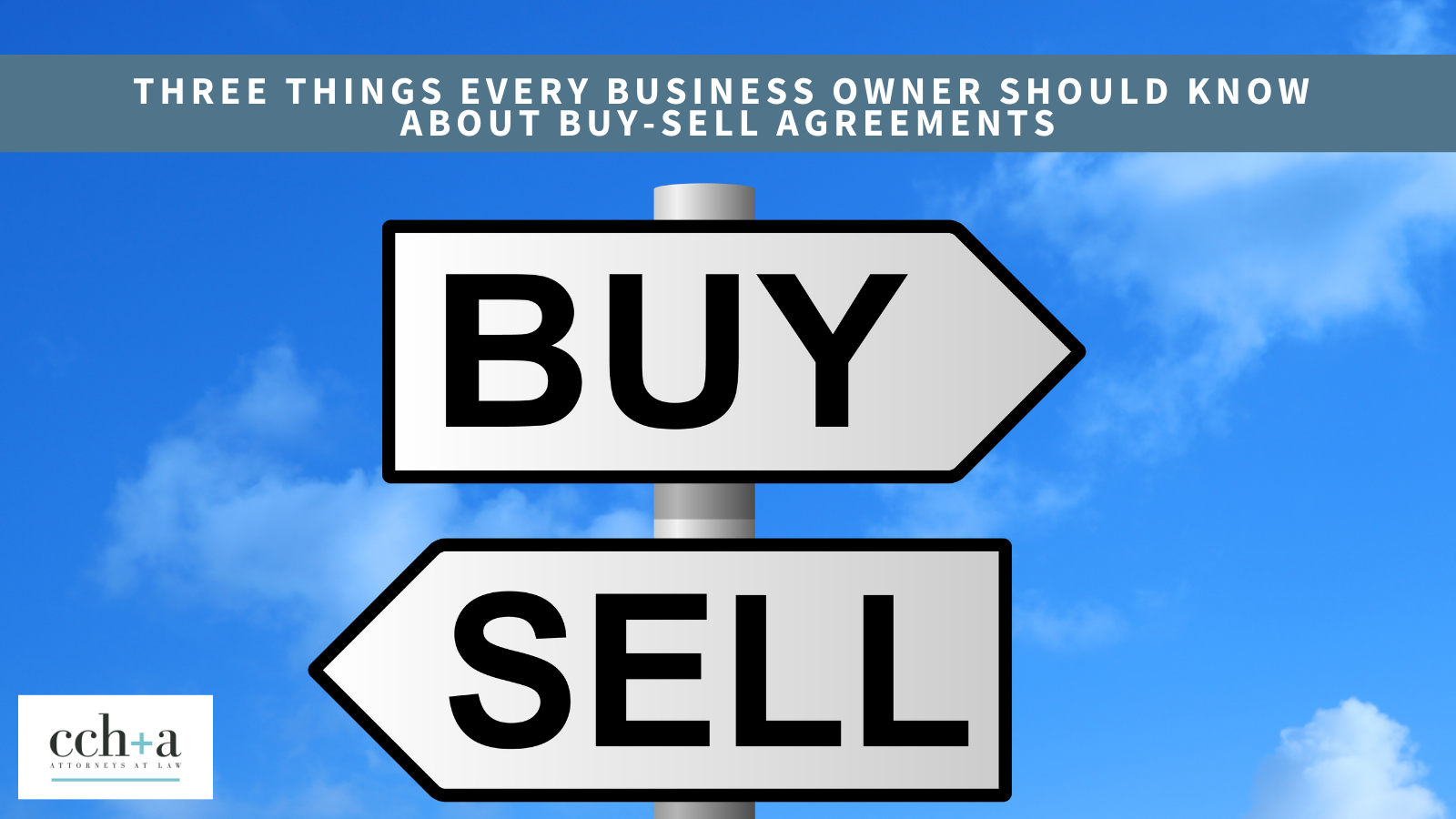Three Things Every Business Owner Should Know about Buy-Sell Agreements

Author: Leslie M. Gieger
POST DATE: 3.29.21

You’re in business and you’re ready to change directions - congratulations! Before walking away from your business, you’ll want to ensure a smooth transition and departure. That’s where a buy-sell agreement comes in and protects you and your company from any future issues, by documenting and solidifying what your wishes are.
Commonly used by sole proprietorships, partnerships and closed corporations to help ensure smooth transitions in the case of a death, retirement or decision to exit the business, a buy-sell agreement is a legal effort that protects all parties in the event one of several owners decides to sell their part of the company.
This agreement outlines who can buy one owner’s interest, what the price will be, what happens to the owner’s part of the business should they die, become disabled, retire, file bankruptcy, or get divorced.

Forms of Buy-Sell Agreements
Generally, there are two types of buy-sell agreements:
- Cross-purchase agreement: when the remaining owners purchase the share of the business that is for sale.
- Redemption agreement: when the business entity buys the share of the business.
The need for a buy-sell agreement
Every business with more than one owner needs a buy-sell (or buyout) agreement at time of business formation or soon thereafter. A buy-sell (our buyout) agreement protects all other business owners in the event one of the co-owners wishes to leave the company, albeit due to wanting out of the business, retirement, wanting to sell shares to someone else, or due to a divorce. Without a buy-sell agreement, the owners are at potential financial risk, thus it’s an important step for all joint-business owners to take to protect themselves and their assets.
Attorney involvement in buy-sell agreements
Maneuvering buy-sell agreements without the involvement of a trusted, experienced attorney is not advised. In utilizing an attorney, you will be preventing the likelihood of serious oversights and repercussions including but not limited to:
- If a former spouse gets a co-owners interest: an attorney will help protect all parties in the event a former spouse wishes to take ownership interest in the company in the event of a divorce from a co-owner. This is especially concerning for the remaining owners, as it is unknown what the spouse will do with their share of a company they didn’t help build and don’t have the sweat equity in.
- If the company’s value is too low: the company may be valued and sold off for less than it is worth without a good valuation system in place. A trusted attorney can help you understand best practices where determining a company’s value is concerned.
- Paying a lofty estate tax: buy-sell agreements can be written in a way that reduces the estate tax due at the time of your death. A lawyer can help you draft a contract so that more money is passed along to your heirs.
- If a co-owner files personal bankruptcy: if a buy-sell agreement is not thoughtfully drafted, a personal bankruptcy could have a significant impact on the business as a whole. If a co-owner lacks the assets to cover his bankruptcy, the bankruptcy trustee could potentially liquidate the company, using the profits to satisfy the debts. As such, most buy-sell agreements include clauses dealing with personal bankruptcy situations. Generally, in such agreements, a co-owner who intends to file bankruptcy must notify all other co-owners. It is then treated as an offer to sell his ownership interest in the company back to the remaining co-owners. The money paid in the buyout goes towards the co-owner’s bankruptcy case.
Contact CCHA with your Buy-Sell Agreement Needs and Questions
Legal issues must be handled efficiently and effectively for your business to be successful. CCHA develops long-standing relationships with businesses that want to have a lawyer on their side, without having the expense of in-house counsel. If your business could benefit from utilizing a skilled, trusted attorney, contact CCHA for your business services needs.

